Historical places in Ontario offer a captivating journey through Canada’s national narrative, blending colonial, Indigenous, and political histories. From the imposing walls of historic forts to vibrant First Nations cultural centers, the province is a treasure trove for history enthusiasts and curious travellers alike. These sites tell stories of early settlers, pivotal moments in Confederation, and the enduring spirit of Indigenous communities. Whether exploring battlefields, museums, or heritage villages, visitors gain insight into Ontario’s vital role in shaping a diverse, resilient, and evolving Canada, making it an essential destination for those eager to connect with the country’s rich past.
Top 10 Historical Places In Ontario
Here is a list of the top 10 historical places in Ontario for all history seekers.
1. Fort Henry National Historic Site
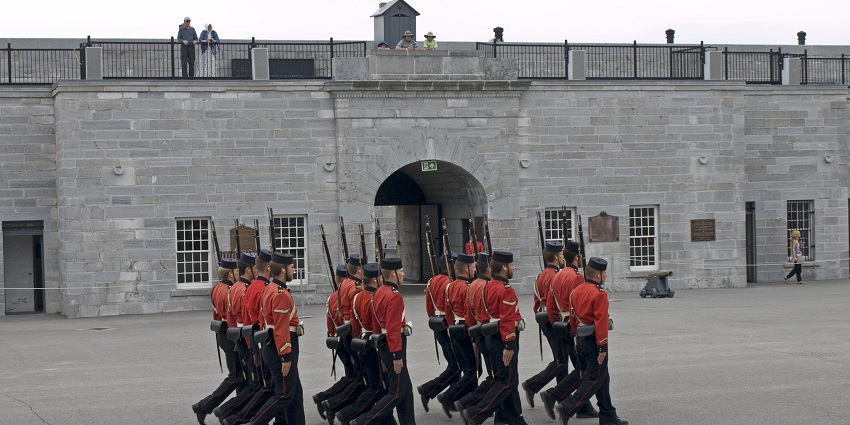
Photo: Ymblanter / Wikimedia Commons
Located in Kingston, Fort Henry is a 19th-century British military fortress overlooking Lake Ontario. Visitors can experience historical reenactments, explore the restored barracks, and watch live artillery demonstrations. Originally built during the War of 1812, the site offers panoramic views and immersive tours that bring military life alive. It’s a compelling destination that honors Canada’s defense legacy while entertaining guests of all ages with engaging, educational programming.
Distance From Downtown Kingston: 3 km
Places To Eat: Wooden Heads Gourmet Pizza, Chez Piggy, Pan Chancho Bakery & Café
2. Sainte-Marie Among The Hurons
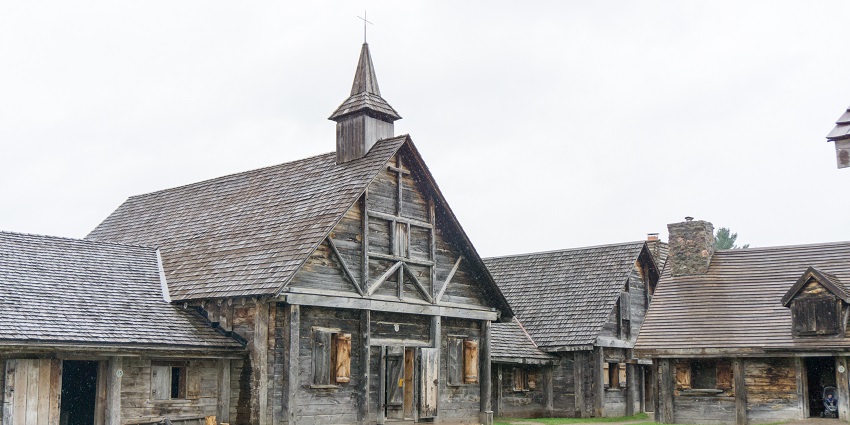
Photo: Markus Daams / Wikimedia Commons
This Midland site was Ontario’s first European settlement, established by French Jesuit missionaries in 1639. It recreates early encounters between Europeans and the Huron-Wendat people. Visitors walk through historical buildings, learn about early missionary life, and witness traditional crafts. Interpretive guides and seasonal events bring the 17th century to life. It’s a powerful reflection on early contact, cultural exchange, and the complexities of Canada’s colonial roots.
Distance From Midland: 7 km
Places To Eat: The Arch Steakhouse, Dillon’s Wood Fired Pizza, Maple Canadian Pub
3. Parliament Hill
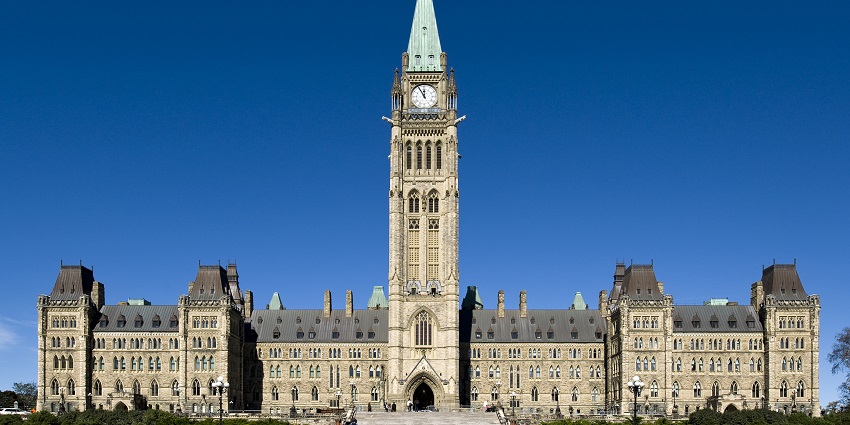
Photo: Saffron Blaze / Wikimedia Commons
As Canada’s political heart, Parliament Hill in Ottawa is both a functioning government hub and a symbol of national identity. Visitors can tour the historic Centre Block, attend public debates, and witness the ceremonial Changing of the Guard. The architecture, sculptures, and sprawling lawns offer a deep connection to Canada’s democratic evolution. It’s a must-visit for those interested in politics, architecture, or national history.
Distance From Ottawa International Airport: 15 km
Distance From ByWard Market: 1 km
Places To Eat: Play Food & Wine, Riviera, Métropolitain Brasserie
4. Dundurn Castle
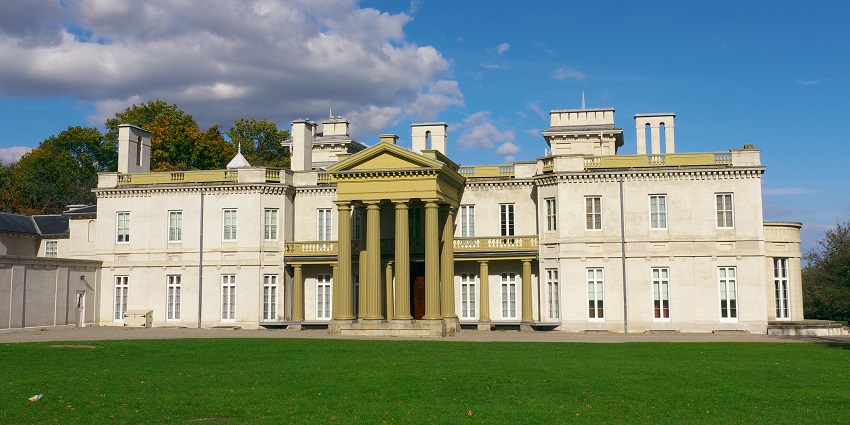
Photo: Paul Tavares / Wikimedia Commons
Built in the 1830s, Dundurn Castle in Hamilton was home to Sir Allan MacNab, a Premier of Canada West. This neoclassical mansion offers guided tours through lavish period rooms, revealing the opulence of the early Canadian elite. The castle’s history also includes the stories of servants and enslaved people, providing a fuller picture of its past. It’s a stunning example of Ontario’s colonial architecture and political heritage.
Distance From Downtown Hamilton: 3 km
Places To Eat: Aberdeen Tavern, Earth to Table: Bread Bar, The Burnt Tongue
5. Upper Canada Village
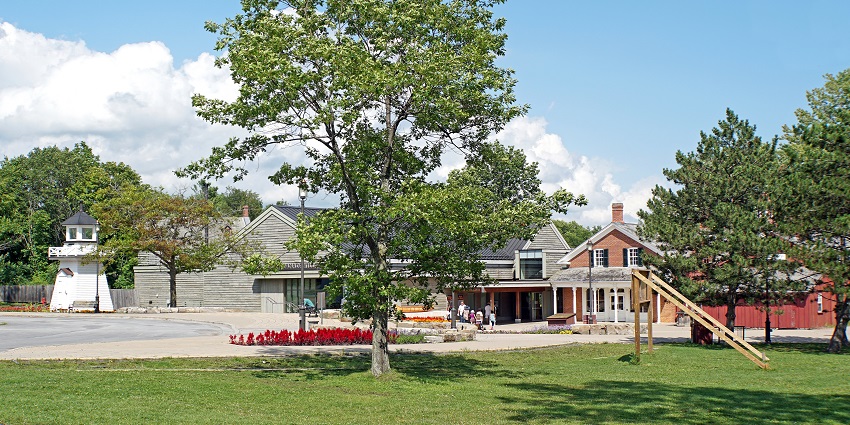
Photo: Dennis G. Jarvis / Wikimedia Commons
This living history museum near Morrisburg transports visitors to a rural 1860s village. Featuring over 40 historic buildings, costumed interpreters, and traditional trades like blacksmithing and weaving, it offers a vivid look at pre-Confederation life. Boat rides, horse-drawn wagons, and hands-on workshops engage all ages. It’s a fun and informative destination that makes Canada’s agrarian past tangible and captivating for modern visitors.
Distance From Morrisburg: 2 km
Places To Eat: Basket Case Café, Village Bean Coffee House, Upper Canada Restaurant
6. Fort York National Historic Site
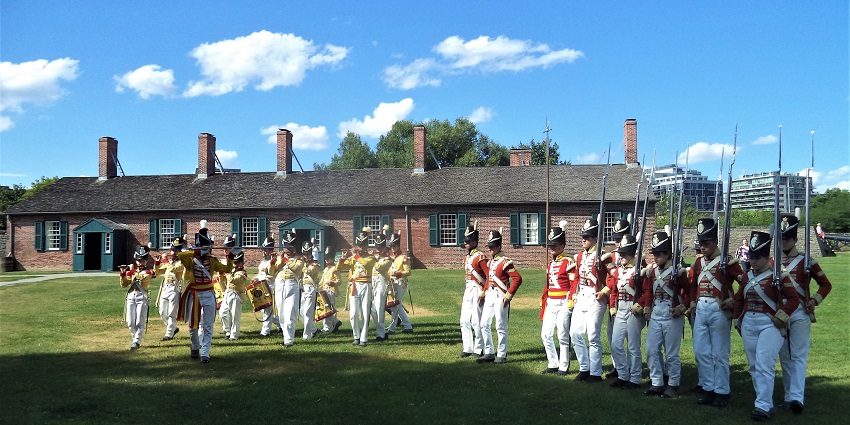
Photo: Mhsheikholeslami / Wikimedia Commons
This site preserves the location of Toronto’s 1812-era fortifications. Known for defending the town against American invasion, Fort York now offers guided tours, museum exhibits, and live reenactments. Visitors can explore officer quarters, bake bread in 19th-century kitchens, and learn about military strategy. It’s a vital part of Toronto’s founding story and a key chapter in Canadian resilience during wartime.
Distance From Toronto Pearson Airport: 25 km
Distance From CN Tower: 2 km
Places To Eat: Machina, Baro, Kōst
7. Royal Ontario Museum
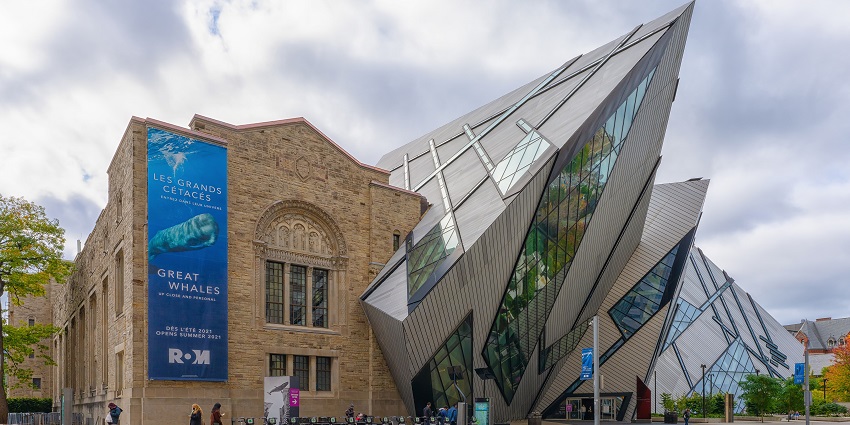
Photo: Maksim Sokolov (Maxergon) / Wikimedia Commons
Though known for global exhibits, the Royal Ontario Museum (ROM) holds extensive collections related to Canadian history, Indigenous cultures, and natural heritage. From First Nations artifacts to colonial-era art, the museum offers an expansive narrative of Ontario’s evolution. Its architectural contrast, classic meets cutting-edge, mirrors the province’s embrace of old and new. It’s a must-see for those seeking to explore the cultural threads woven through Ontario’s identity.
Distance From Toronto Pearson Airport: 27 km
Distance From University Of Toronto: 0.5 km
Places To Eat: Museum Tavern, The One Eighty, Famoso Neapolitan Pizzeria
8. Fort George National Historic Site
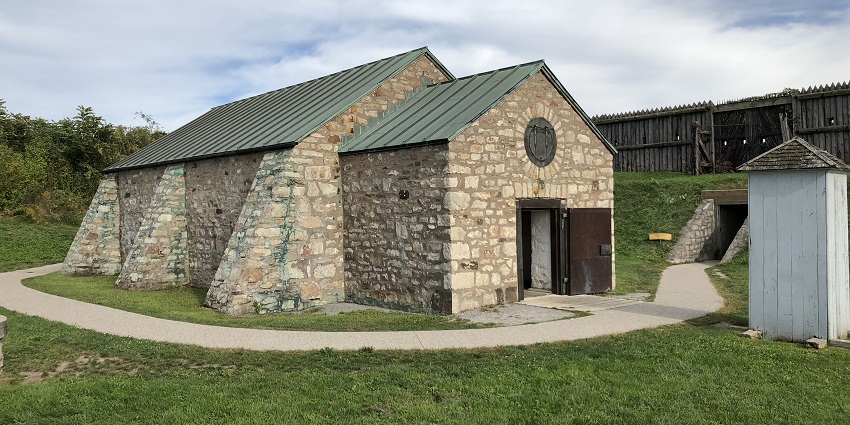
Photo: Maksim Sokolov (maxergon.com) / Wikimedia Commons
Fort George played a key role in the War of 1812, defending Canada from American forces. Located near the U.S. border, this site in Niagara-on-the-Lake includes reconstructed buildings, historic weaponry, and uniformed reenactors. The immersive experiences, including musket demonstrations and guided tours, bring wartime stories to life. It’s an essential stop for understanding the military and political tensions that shaped early Canada.
Distance From Niagara Falls: 20 km
Places To Eat: The Irish Harp Pub, Treadwell Cuisine, The Garrison House
9. Black Creek Pioneer Village
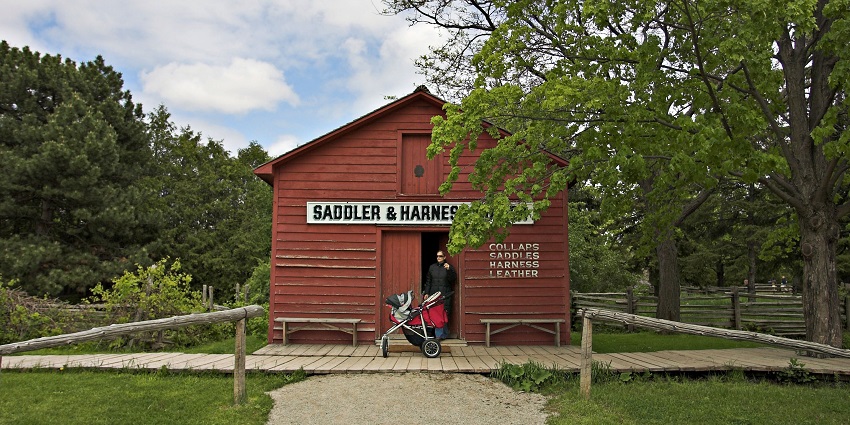
Photo: Gary J. Wood / Wikimedia Commons
This recreated 19th-century village in Toronto features over 40 heritage buildings, live demonstrations, and seasonal festivals. Costumed guides showcase trades like printing and tinsmithing, offering visitors a hands-on journey into pioneer life. Educational programming makes it ideal for families and school groups. It’s a charming portal into the everyday experiences of early Ontarians, emphasizing self-reliance, community spirit, and rural innovation.
Distance From Toronto Pearson Airport: 15 km
Distance From Vaughan Mills Mall: 10 km
Places To Eat: St. Phillips Bakery, Sofra Istanbul, Jack Astor’s Bar and Grill
10. Ontario Legislative Building
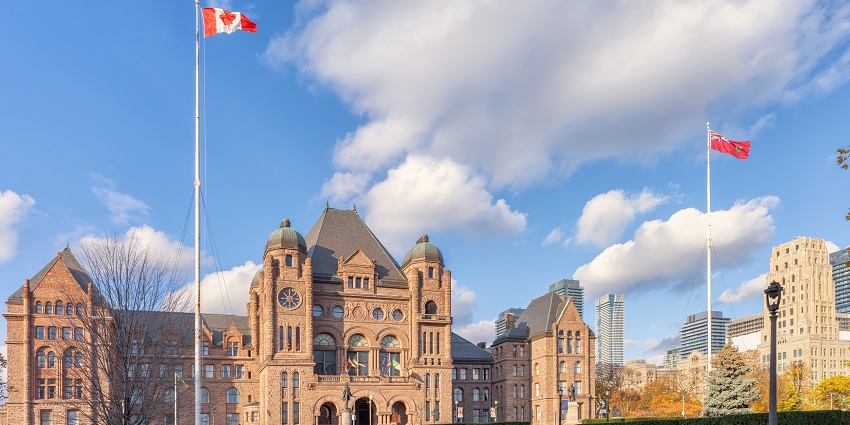
Photo: Maksim Sokolov (Maxergon) / Wikimedia Commons
This political landmark in Toronto has been home to Ontario’s legislature since 1893. The Richardsonian Romanesque architecture, legislative chambers, and statues on its grounds reflect Ontario’s growth as a province. Public tours offer insights into lawmaking and civic life. It’s both an educational site and a symbol of democratic governance, surrounded by lush Queen’s Park in the heart of the city.
Distance From Toronto Pearson Airport: 25 km
Distance From Royal Ontario Museum: 1 km
Places To Eat: Hemingway’s, The Queen’s Pasta Café, The Chase
These historical places in Ontario are as diverse as its people, from Indigenous legacies and colonial forts to cultural museums and government landmarks. Each location provides a window into the values, struggles, and victories that shaped the province and the nation. Ready to embark on your historical journey through Ontario? Book your journey with TripXL today for an unforgettable memories rooted in the Canadian heritage.
Cover Photo: Splash of Rain / Pexels


 WhatsApp
WhatsApp
 Twitter
Twitter









